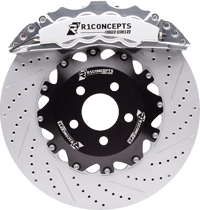
Commonly referred to as an EV, an electric vehicle is one that uses electric motors to generate movement – as opposed to the internal combustion engine that most of us are used to. Sometimes, those motors are charged via a battery. In other situations, they’re charged using solar technology. Regardless – they’ve become an important part of the automotive industry and are one trend that shows no signs of slowing down.


While EVs actually date back to the mid 19th century, they’ve become particularly prominent over the last two decades due to an increased focus from consumers on renewable energy and environmental impact. All told, their rise has been an impressive one – and their future is perhaps even more so.
Advancements in Electric Vehicles: An Overview

Regardless of how you look at it, electric vehicles bring with them a wide array of different benefits that cannot be ignored.

Chief among these is their superior fuel economy – they simply have lower fuel costs than “traditional” vehicles, despite the larger initial investment that is required of consumers. It’s been estimated that as of 2020, a standard Toyota Corolla Hybrid can enjoy up to 52 miles per gallon – compared with the gasoline-based alternative, which only gets about 34 miles per gallon.

Of course, the major benefit that electric vehicles have to offer comes by way of emissions. Both hybrid and plug-in EVs are a significant boost to the environment – something that consumers have shown they care about more than ever. They’re efficient, low-polluting and they simply cost less money to run in the long haul – all of which is a perfect storm for people who are looking for any opportunity to both save money and do their part to help protect our environment.

It’s true that electric vehicles have had a slow-but-steady increase in popularity over the last few years. In 2019, sales of such cars surpassed 2.1 million across the globe. While this was an increase over one year prior, it’s still a fraction of the traditional cars that are sold on an annual basis. However, as the old saying goes, “slow but steady wins the race.”

One recent study indicated that in 2019, electric vehicles amounted to 2.6% of all worldwide car sales. That is a massive 40% increase over the previous year. If any industry experienced that type of growth in one calendar year, it would be cause for celebration. But when it comes to the automotive space, it’s cause for something else:
Revolution.


Right now, the seeds are being planted for what will likely be the biggest revolution since the birth of the industry itself. Major names like Jaguar have already said that they only plan to sell electric cars starting as soon as 2025. Volvo has made a similar claim, beginning in 2030. Lotus will only sell EVs from 2028 moving forward. The list goes on and on.

Overwhelmingly, the people have spoken. They care about saving money and they care about the environment. They care about vehicles that are more than just a luxury, but that help saves as much of their hard-earned money as possible. Electric vehicles do all of this and more – one of the reasons why they’ll continue to grow even more popular in the not-too-distant future. If you’re interested in finding brake parts for your EV, electric vehicle, or if you’d just like to discuss your own needs with someone in a bit more detail, please don’t delay – contact R1 Concepts today.











